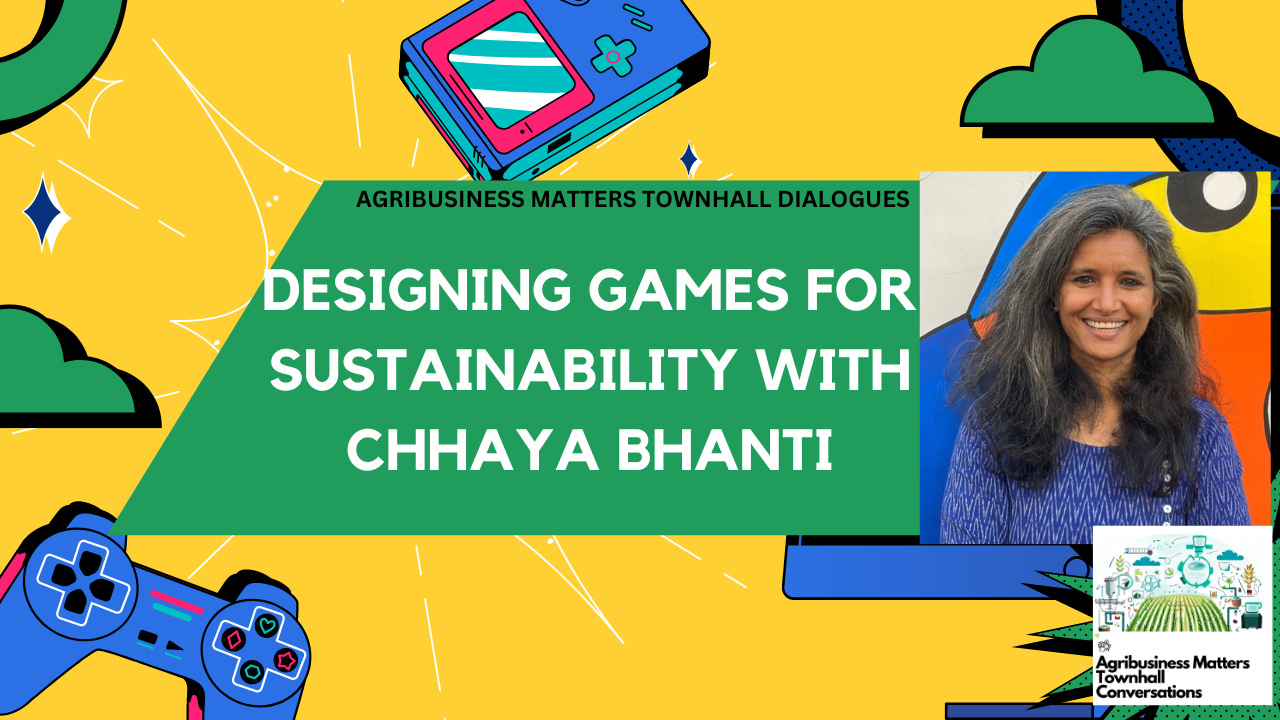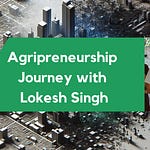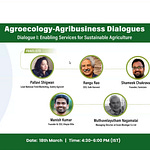“It is no measure of health to be well adjusted to a profoundly sick society." - Jiddu Krishnamurti
Career transitions often happen in those sacred moments when you realize that you cannot be well-adjusted to a profoundly sick society. The other day, my friend wrote to me this when he joined the Agribusiness Matters community.
"It's a very interesting scenario - students don't think there is a career in it, businesses don't seem to care about the soil or food, consumers don't feel empowered to do anything about it and the government. I don't know enough about what they are doing about it."
I ditched my agritech product manager tech career to build Agribusiness Matters precisely to tackle this moonshot goal.
How do we bring hope to students that there is a good career to be made in food and agriculture, doing the right things for the soil, empowering customers to care deeply about food and agriculture, building planet-friendly businesses that aren't greenwashing when they talk about caring, backed by investors who genuinely care about soil and food, in collaboration with governments which want to incentivise them for doing so?
On a sunny day, this is a fascinating design problem worth solving.
Few weeks back, I invited an exceptional guest to the ABM Townhall to tackle this hydra-headed question. And the conversation nourished my soul with an intellectual high when it turned out to be multi-disciplinary in the truest sense of the word.
Chhaya Bhanti is Creative Director at VERTIVER, which created Kara Bhara, a snakes and ladders game for communities and farmers to transition towards sustainable agriculture techniques.
Her background echoes my career journey and deeply warms the cockles of my heart.
“Chhaya was a brand designer living the high life in New York when she woke up to the inherent waste and destruction that her industry and own work were creating. She returned home to India, took time out to reacquaint with her country (riding her bicycle down the Himalayas from Ladakh!), and then set up her own communications company to be a positive influence in the world. Chhaya’s advocacy work supports policy change and community empowerment affecting millions of people.” (From one of her podcast intros)
It has taken her team five years of deep immersion to arrive here and when I look at the game, I see immense possibilities. How do we scale regenerative agriculture transitioning efforts? How do we bridge the gap between expectations and reality of transitioning farmers from conventional to sustainable agriculture?
As a storyteller, Chhaya approaches this problem as a visual problem and a comprehension problem.
”Vertiver is a communications and knowledge consultancy. We help simplify the complexity that underlies issues of sustainability through design & research led behavior change approaches. Vertiver’s researchers, designers, storytellers and passionate environmentalists have successfully engaged stakeholders across policy, science, research & business on issues of waste, forestry, biodiversity, climate action, ecosystem conservation, water resource conservation and sustainable agriculture” (From Vertiver’s Website)
In this fascinating ABM Townhall dialogue along with ABM regulars Vivek and Will, we delved into fascinating rabbit holes - We explored the question of skin-in-the-game, tools for introspection, discovering hot water springs of inspiration in today’s dreary climate chaos, mechanics and mediums for storytelling, glimpses of her projects where she tapped into religion and culture for promoting sustainability, provocative explorations of challenging men’s ego to challenge their role in agriculture that is getting feminized, and ways to move beyond projectitis in the development sector and lots more.
This conversation felt like chicken soup to the soul. I hope you enjoy it as much as I did:)
01:52 Her Roots, Her Mum, Raj Bhanti, being the biggest influence in her life
05:36 How do you discover inspiration when humans go through the pendulum of hope and despair, especially when humans don’t seem to be in control over what is happening currently on the planet?
07:26 What does Vertiver do? Her focus on behavioural change across different streams in sustainability?
09:50 The question of skin in the game when designing for behavioural change: How do you make sure that you keep the problem at a very tactile level?
13:41 How Agriculture breaks down the artificial between personal life and professional life. When does change become inward, examining lifestyle choices? What kind of tools do we create that make them introspect? Chhaya talks about Prana Project as a case study.
16:14 Agritech Theater and when does the penny drop for change? The importance of telling evidence with data and anecdotal stories;
19:16 The importance of social cohesion in rural and urban India and how it is eroding; The question of material poverty and poverty that exists in the mind. Breaking the asymmetric relationship between the funder and the nonprofit and the giver and the recipient.
27:26 Moving beyond projectitiis in the development sector
30:22 Vernacular theories of behavioural change and why scale is a wrong metric to chase in impact.
34:45 Breaking through the clutter of organic farming
38:03 Behavioural Change Experiments in Kenya
42:31 The role of Climate Finance
46:07 Challenges in enabling frontline workforce with behavioural change tools.
49:23 How to help farmers make the right decisions when they want others to make decisions for them? Which decisions require training and trade-offs?
So, what do you think?
How happy are you with today’s edition? I would love to get your candid feedback. Your feedback will be anonymous. Two questions. 1 Minute. Thanks.🙏
💗 If you like “Agribusiness Matters”, please click on Like at the bottom and share it with your friend.












